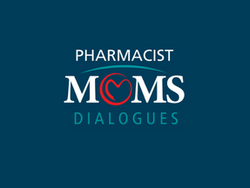Imposter syndrome among women in healthcare and how to conquer it!
Ani Rostomyan PharmD, BCPS, APh, talks about imposter syndrome for women in healthcare and how they can conquer it
That little meanie, the voice in my head, would keep bugging me each time I wanted to start new projects and take on new opportunities in my career.
Each time I wanted to work on my professional growth, there was a need to silence that voice down so I could reach my dreams and goals, and that was truly exhausting.
My achievements still became a reality despite feeling imposter and not enough, but the price I paid was a little too high, since I was fighting with that little meanie in my head, while conquering life and my pharmacy career.
Being a foreign-trained pharmacist, all I remember in my early career was a lot of suffering with every achievement. I had to take the English language proficiency exam and multiple tests to qualify for NAPLEX, while being pregnant and a young mom, and feeling not enough.
My imposter was fueled by my own personality, being shy and introvert. I constantly justified to myself that being a foreign-trained pharmacist is not any less credentialed or inferior.
Starting my second school for Doctorate in Pharmacy in 2014 at MCPHS, Boston, while already working as a licensed pharmacist for a retail chain was the next step to fulfill the dream to become enough and equal to others, although I learned and gained superior clinical skills and expertise during that time.
The revelation I had in 2020 was I am more than enough. One and a half years of active coaching and working on my limiting beliefs helped me realize success is not measured by degrees and credentials but by my own inner confidence.
Imposter syndrome among any highly educated professionals and especially women in healthcare is real!
If someone demeans our skills and expertise the way we do it to ourselves, can easily lead to feeling harassed or bullied. Yet we’re more likely to inflict that indignity upon ourselves: Seventy percent of women and men unfortunately doubt themselves despite compelling professionalism and achievements. Imposter phenomenon affects minorities, women of color in a much greater way, literature suggests.
Dr. Clance and Dr. Imes first referred to this phenomenon in 1978, and it gained significant public attention in their 1985 published book. Interestingly, the syndrome is present in high-achieving, successful and well-regarded professionals who, on the outside seem extremely confident and prosperous, but truly struggle with each professional move and feel they don’t deserve the recognition.
Important to note, impostor syndrome is not yet included in the Diagnostic and Statistical Manual of Mental Disorders (DSM), and it seems that professionals rarely seek mental health support solely for this reason, but a large body of literature suggests it is a root cause for many comorbidities such as anxiety and depression.
Studies researching the imposter phenomenon among women health care professionals describe how much it affects job performance, creates fear to seek promotion at work, contributes to higher level of burnout, lowers job satisfaction, and leads to departure from the workforce in some cases.
Considering all the available evidence, it is incumbent on employers to recognize the burden of this phenomenon on productivity by training, mentoring, and coaching employees to counter the ill effects of the imposter syndrome. Employers who are focused on growth, leadership, and equality at workplace, must provide their employees self-paced learning materials, access to therapy and resilience training on this.
Giving health care workers the opportunity to be heard and using de-identified assessments will normalize and hopefully destigmatize imposter syndrome among them and help cope with the syndrome rather than ponder leaving the profession.
My own advice that helped me recover from imposterism is to start vocalizing your feelings and find a group of supportive and like-minded women professionals who share your experience.
A final thought - you are best valued by the quality of care you give to your patients and the positive impact you have on their lives, far more than your credentials, degrees, and recognition from superiors.









.png)



